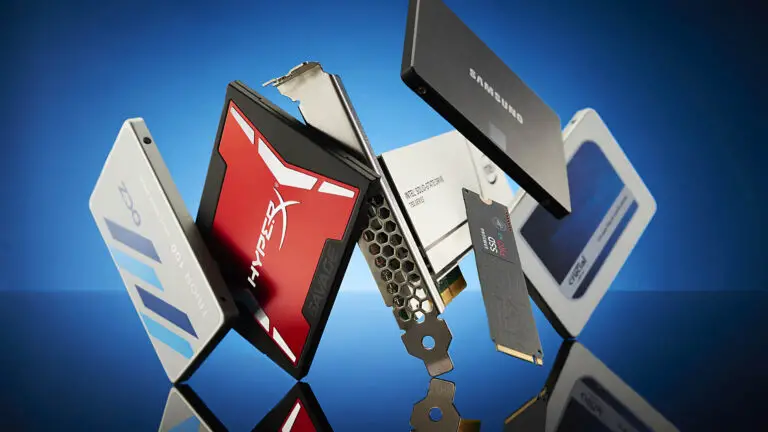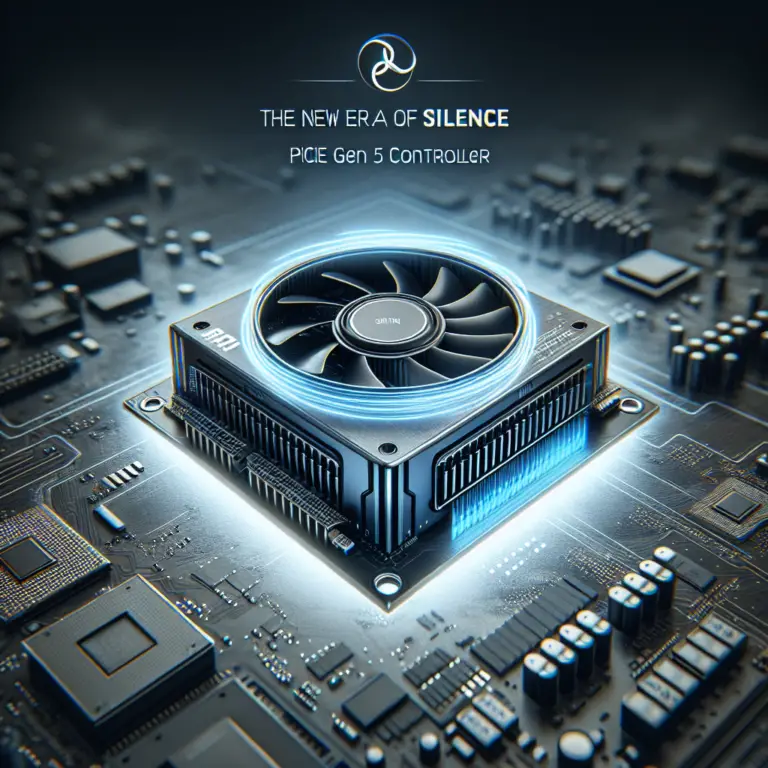Challenges Faced by PCIe Gen 5.0 SSDs
Despite the advancements in technology, PCIe Gen 5.0 SSDs have struggled to gain the same popularity as their Gen 4 counterparts. One of the main hurdles has been the high pricing, which has made them less appealing to a broader audience. Additionally, the real-world performance benefits over Gen 4 SSDs are not significant enough for most users, considering the more affordable price point of the latter.
Another significant challenge for PCIe Gen 5.0 SSDs is the issue of heat generation. The high speeds come with increased thermal output, necessitating complex cooling solutions that can be impractical for many systems. To address these concerns, Phison has announced new products that aim to mitigate these issues, particularly focusing on reducing heat to enable the use of Gen 5 drives in more compact and diverse systems.

Phison’s New PCIe Gen 5 Controller
Phison is stepping up to the challenge with its new PS5031-E31T controller, a product designed to bring the benefits of PCIe Gen 5 technology to a wider range of devices. This controller is notable for its maximum sequential read and write speeds, which, while not the highest in the category, offer a significant improvement over the previous generation.
| Controller | Max Sequential Speed (MB/s) |
|---|---|
| PS5031-E31T (PCIe Gen 5) | 10,800 |
| PCIe Gen 4.0 x4 | 7,880 |
The PS5031-E31T controller is engineered for lower power consumption and reduced heat output, which is a significant step towards eliminating the need for active SSD cooling. This innovation opens the door for Gen 5 drives to be used in compact systems, laptops, and handheld devices where space for cooling is limited.
With the introduction of this controller, Phison is addressing the thermal challenges that have hindered the adoption of Gen 5 SSDs, potentially changing the landscape for high-speed storage in various computing environments.
Technical Specifications
The PS5031-E31T controller is a testament to Phison’s commitment to advancing SSD technology. Here are the detailed technical specifications of this innovative controller:
- Manufacturing Process: TSMC’s 7nm
- Configuration: 4-channel
- CPU: ARM Coretex R5
- Encryption: AES 256
- Error Correction: Phison’s 7th Gen LDPC
- Maximum Capacity: Up to 8TB
- NAND Flash Support: 3D TLC and QLC
These specifications highlight the controller’s robust performance capabilities and its suitability for a range of applications, from mainstream computing to high-end gaming systems.
Additional Controllers and Demonstrations
Alongside the PS5031-E31T, Phison is also introducing the PS5027-E27T controller, which is tailored for the 2230 form factor M.2 SSDs commonly used in handheld gaming devices like the Steam Deck. This PCIe Gen 4 controller is built on TSMC’s 12nm process and boasts impressive maximum sequential performance figures of 7,400MB/s for reads and 6,700MB/s for writes.
For those seeking the pinnacle of performance, Phison’s PS5026-E26 Max14um Gen 5 SSD controller is set to be a showstopper. This controller has been demonstrated to achieve over 14,000 MB/s reads and over 12,000 MB/s writes. However, such high performance necessitates advanced cooling solutions to manage the heat.
- PS5027-E27T: PCIe Gen 4, 12nm process, 7,400MB/s read, 6,700MB/s write
- PS5026-E26 Max14um: Gen 5 SSD controller, over 14,000 MB/s read, over 12,000 MB/s write
These controllers represent Phison’s diverse approach to the SSD market, catering to both portable gaming solutions and high-end performance needs. The anticipation for their demonstrations at CES 2024 is high, as industry experts and consumers alike are eager to see these technologies in action.
Market Impact and CES 2024 Anticipation
While the performance of high-speed SSDs like those powered by Phison’s controllers is impressive on paper, the market impact of these devices is contingent on several factors. The high cost of PCIe Gen 5.0 SSDs is a significant barrier to widespread adoption. Moreover, the current NAND production difficulties suggest that a drop in prices may not be imminent, which could further delay the embrace of Gen 5 technology by the general consumer.
Despite these challenges, the industry is looking forward to CES 2024 with great anticipation. The event will serve as a platform for showcasing the potential improvements in SSD technology, including Phison’s latest offerings. It is at this prestigious event that manufacturers and consumers alike will get a closer look at how these advancements could shape the future of storage solutions.
The hope is that with continued innovation and eventual economies of scale, the benefits of Gen 5 SSDs will become accessible to a broader audience, leading to a new standard in storage technology.












